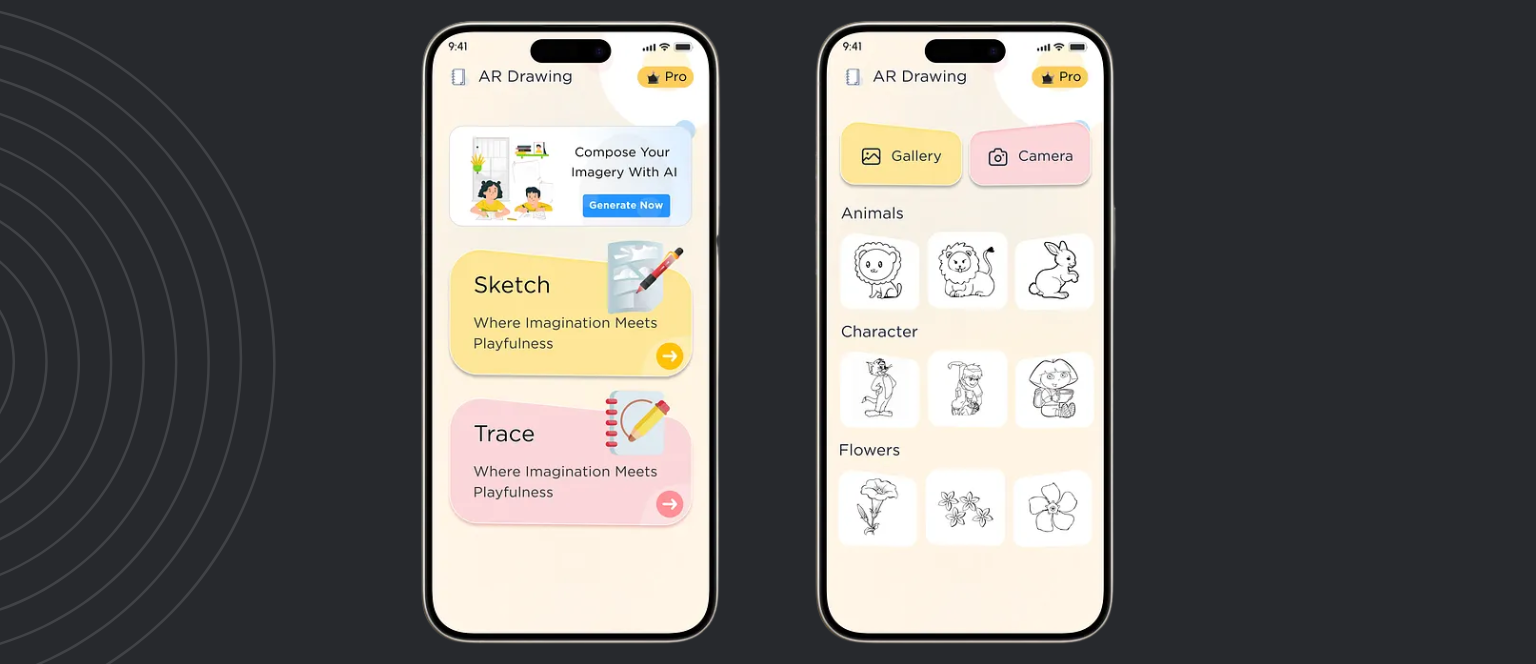The opportunity to enter new revenue streams in fintech software development, such as Neo banking, Insurance Tech, investment management platforms, and digital banking platforms, has been made possible by the widespread use of digital technology. FinTech firms are developing super-personalized services and products which can be packaged and sold separately by the requirements of the customers and also in targeted customer groups by harnessing breakthrough technologies such as ML, analytics, AI, as well as Web 3.0. Furthermore, India Stack and UPI have promoted the expansion of digital finance. Such developments are all set to accelerate India’s advancement toward financial inclusion and enhance societal financial sustainability.
Banks have been pushed to quicken their digitalization procedures as soon as the COVID outbreak commenced. Even though many people have discovered that creating their unique fintech software development capabilities requires a considerable amount of effort and money, recent regulatory changes in 3rd-party guidelines have managed to open up a broad spectrum of collaboration opportunities between financial institutions and fintech.
Custom Software Development companies will be subjected to considerably increased scrutiny in 2025 as a result of the lifestyle cost-oriented problems to digitalize their offerings and cater to customers’ changing expectations and preferences. As a result, there is going to be a tremendous rise in the number of banks working with outside sources, which again will result in unimaginable investment and development in the B2B fintech marketplace.
Table of Contents
Top 15 Trends in FinTech Services and Digital Banking Sector in 2025
1) Open banking
According to sources, as compared to 2020, 5 times more people will be using Open Banking by the end of 2025.
What is Open Banking?
Regulated financial exchange of information is the main goal of open banking. Customers can give consent to protocols for securely disclosing their financial records with unconventional financial firms. 3rd-party providers can examine the data of their clients owing to obtainable APIs. Open banking aspects are widely used by fintech software development services that provide loans, spend tracking, financial advice, and budget management.
Because of the open APIs, banks can provide retailers, insurance companies, as well as other entities with data about their client’s financial details. A strong validation of the client’s creditworthiness is ensured before providing insurance, giving out loans, or allowing payment in EMIs. Users may now swiftly and effortlessly make payments for products and services digitally, get a loan, and pay for things with a quick flick thanks to open banking.
2) Neo Banking
We’ve managed to learn from the COVID outbreak that we can accomplish everything from home, and even the financial sector has given this fact some serious consideration. Neo Banks have sprung up as a result of fintech software development. These mimic conventional banks but are virtual institutions.
Neo banks, therefore, are retrofitted with every amenity found in a typical local bank. Nowadays, every company is primarily focused on the Neo banking model, as opposed to conventional banking structures. As a result of the potential savings and ease of access, it is a strategic approach that benefits both customers and businesses.
Neo Banks frequently offer lesser services than major banks, but they place more emphasis on certain specific categories to enhance the standard of such offerings. By 2025, the number of individuals with a minimum of one Neo Bank account is predicted to increase from 20 million to 40 million.
3) Regulation-Based Technology
Financial organizations are supposed to follow the statutes, guidelines, and benchmarks that monitor and control the functioning of government policies. Financial transactions of a business, tax statistics, revenue findings, and client accounts must all be kept up to date by organizations.
Regulatory Technology seems to be a category of fintech software development required to accurately track compliance with regulations. It discovers issues that don’t adhere to the regulations and fixes them so they function as part of the system. It helps in the automation of repetitive processes, monitoring data safety, and warning users and bank employees of fraud with the assistance of dedicated software capabilities.
Hefty penalties are imposed on organizations that fail to comply with the preset norms of financial operability. For example: If a bank fails to provide a valid and detailed explanation to its shareholders that demand basic transparency, the state or the central government may impose a heavy penalty.
Regulatory technologies simplify business interactions with the respective regulatory agencies for the data to be supplied without delay and for compliance tracking.
4) ML (Machine Learning) and AI (Artificial Intelligence)
Artificial intelligence (AI) empowers financial firms to evaluate the customers’ fiscal viability and provide them with more meaningful and tailored services by acquiring and analyzing data about customers’ bank deposits, lines of credit, as well as holdings.
Businesses may enhance digital financial services by utilizing behavioural processing, interaction, analysis of data, and analytics capabilities.
The global market for ML and AI in fintech is predicted to grow to an incredible $27 billion by the year 2026. Over 90% of global fintech companies are already heavily reliant on ML and AI algorithms.
What is AI capable of doing?
- Management of client information
- Offer strategic suggestions about management techniques
- Discover any flaws in the system
- Enhance the banking experience
- Incorporate Chatbots and other apps for increased retention
For example, A huge financial holding can partner with a fintech software development company for incorporating AI in its operations. It could come up with a unique offering to a particular category like VIP account holders, and provide them with insightful perspectives and projections of their profits and expenditures.
5) Robo-advisors
Now that AI technology has transitioned, numerous investors could perhaps gain from algorithmic financial advice.
Robo-advisors as well as private financial advisers provide investors with the most profitable methods to allocate their funds using AI technologies. Solutions of this character are very profitable and have a revolutionary influence in the marketplace.
How can Robo-advisers help?
- With the ML and AI data algorithms, Robo-Advisers can be beneficial in the following ways:
- Investigate enormous amounts of information
- Superior to human experts at adjusting to a dynamic environment,
- Focus on providing investors with ideal investment options available to assist them in accomplishing various objectives.
Since different investment tools have significantly lowered the entry load for traders and enabled nearly everyone to produce revenue, regardless of how little the funds are, these are especially popular well within novice investors who have little or no exposure to conventional guidance.
6) DeFi – Decentralized Finance
Decentralized financing seems to be a unique, emerging fintech phenomenon for 2025, even though it is associated with the cryptocurrency business and alternate financial tools.
Decentralized financial offerings, which operate autonomously and without any centralized system, include solutions for payments, lines of credit, trading, and more.
It is publicly available and employs auto-executing payment systems including all maintenance, offering customers more acknowledgement.
Considering that it makes it simpler for various blockchain technologies to engage with each other, the cryptocurrency business has reached a brand-new stage and is now accessible to a broader audience.
There are several DeFi ventures readily available on the market that could contend with centralized financial markets.
7) Blockchain Technologies
By 2030, the blockchain-based industry will have at least quadrupled, approaching a turnover of around $1,5 trillion (according to various reports).
The major payment systems, such as Mastercard, Visa, and others, have begun to leverage blockchain resources and permit 3rd parties to transfer funds using these techniques. Currently, it takes a great deal of effort and expense to transmit money overseas. Blockchain software development, on the other hand, aim to address these obstacles with increased speed and safety for international transactions and lower prices.
Blockchain tech is often referred to by the terms “virtual ledger” or “shared data system.” Every activity is recorded in what seems like a distinct block coupled with prior blocks in the chain. It is open to all participants.
8) Smart Contract Services
Smart contracts seem to be a noteworthy FinTech breakthrough with numerous global financial possibilities. It oversees and controls how agreements established digitally between a purchaser and a vendor are put into action. Virtual deals don’t need solicitors or paperwork because the contract is signed digitally using cryptography.
These contracts in the financial domain have the potential to streamline agreements without the requirement for a mediator like something of a financial institution or lending agent. It proposes that without engaging banks, sellers and buyers should safely engage with the use of a legally binding agreement.
Further developments in Smart Contracts technologies could be powered by decentralized finance applications. This will enable you to get credit without having to physically visit a banking institution.
9) BNPL – Buy Now and Pay Later
By 2026, transactions worth over $500 billion would reportedly use The Buy Now and Pay Later form of funding, up from only over $100 billion in 2021.
In industries that involve frequent transactions in just about any manner, the awareness of Buy Now and Pay Later has become very significant, regardless of whether the business is B2B or B2C.
A method of short-term finance dubbed “Buy Now and Pay Later” enables the payment of products or services at a later time.
This is a popular kind of finance because it typically operates without any charge. POS loan instalment users can pay a down payment followed by payoffs of the remaining debt at a later date.
10) Online Payment Gateways
All forms of operations require the development of a payment gateway. Online Payment Gateways create a link between customers and merchants to speed up banking transactions.
Due to the sheer magnitude of transactions and the steadily increasing number of merchants, the demand for payment gateways is growing exponentially. Currently worth over $17 billion, it’s expected to be valued at nearly $40 billion by 2025.
To solve several problems, traders must mix a variety of services. For example, a tool may not approve a particular payment system, another may not offer international support, and yet another might charge an excessive fee.
The ease of the payment structure will take precedence within and between fintech trends in 2025.
11) Biometric Authentication
Consumers frequently seek out businesses that provide quick proof of identity or authenticity experiences in high numbers. The bar has been raised by firms that use this level of protection, and fintech companies are getting intrigued.
Significant investment in a fintech solution’s security is closely related to increasing its efficiency. A fintech solution is supposed to ensure secure data handling as well as archiving and be resistant to threats.
Even though these fintech developments are not the hottest in news, security protocols have grown more important as online banking has enhanced.
Even after creating various passwords, users believe that biometric authentication is the safest way to prove their identification. There is no need to memorize letter or number sequences. In case your laptop or smartphone is stolen, private data would stay always stay protected.
12) Cryptocurrency
Approximately half of the people who use cryptocurrency platforms for overseas money transfers do so already and see them as genuine alternatives.
In light of the rapid deployment of cryptocurrencies by organizations throughout the world, the worth of these digital assets is skyrocketing. The “crypto cold” problems the sector is currently witnessing, however, introduce additional long-term opportunities such as reducing inefficiencies that include cross-border payment and more.
13) Voice Based Payments
The voice recognition system will successfully shield the customer account. With the help of voice commands, the user can simultaneously make purchases, check the balance, and carry out other tasks.
In replacement of chatbot tools, supervisors, and help desk staff, other FinTech organizations have started using voice assistants to facilitate discussions on difficult matters.
Voice Assist will allegedly be implemented in the entirety of industries, which includes but isn’t restricted to FinTech, according to numerous polls and reports.
14) Fintech Oriented Gamification
Gamification in the Fintech industry refers to the implementation of technology for revenue-focused organizations to enhance the experience for customers. The process of gamification benefits businesses and organizations by increasing revenue, brand as well as customer loyalty, and various other advantageous aspects. Customers are becoming increasingly sceptical of how organizations use technology now that they have become more familiar and comfortable with using it.
Industry experts claim that gamification technologies are all set to multifold on a great scale by 2025. Gamification is a methodology that several companies are trying to incorporate into their business strategies to stay engaging and entrepreneurial. It is being welcomed with great warmth by businesses like never before. Thus, many companies are currently employing gaming techniques to market their products, retain clients, and instill a sense of belonging in them.
15) BaaS (Banking as a Service) Adoption
BaaS refers to the distribution of banking services and products by 3rd-party distribution channels. BaaS products are providing unprecedented, specialized propositions that speed up their market introduction by connecting non-banking businesses with regulatory fintech technologies.
The giant corporations would be more than pleased to withstand the blow on the interchange margins if the prospective partner, who is much more likely to be an established store or retailer than that of a fledgling fintech predicts a high amount of transactions or, simpler yet, credit quantity.
But working with fintech firms that meet the needs of consumers won’t guarantee that the big institutions embrace the BaaS segment. By collaborating with specialized SaaS vendors who already possess relationships with businesses operating in a variety of niche marketplaces, they will concentrate their BaaS initiatives on the industrial, or local business, side of the economy.
Summary
The fintech software development industry is anticipated to keep developing during 2025, with several intriguing trends emerging that may completely transform the way individuals deal with their finances. Furthermore, as more firms see the advantages of using technology when attempting to assist people, financial knowledge is turning into an enormously relevant trend throughout the fintech industry. Without a question, 2025 is going to be a significant year for the global financial services market because of the increasing demand for digital financial solutions and the strengthened regulatory structure that will allow for further cutting-edge technologies such as blockchain to be deployed at a rate much higher than previously possible.






